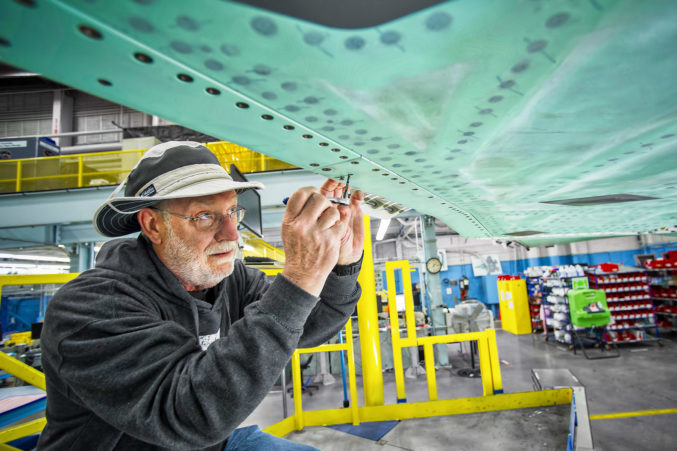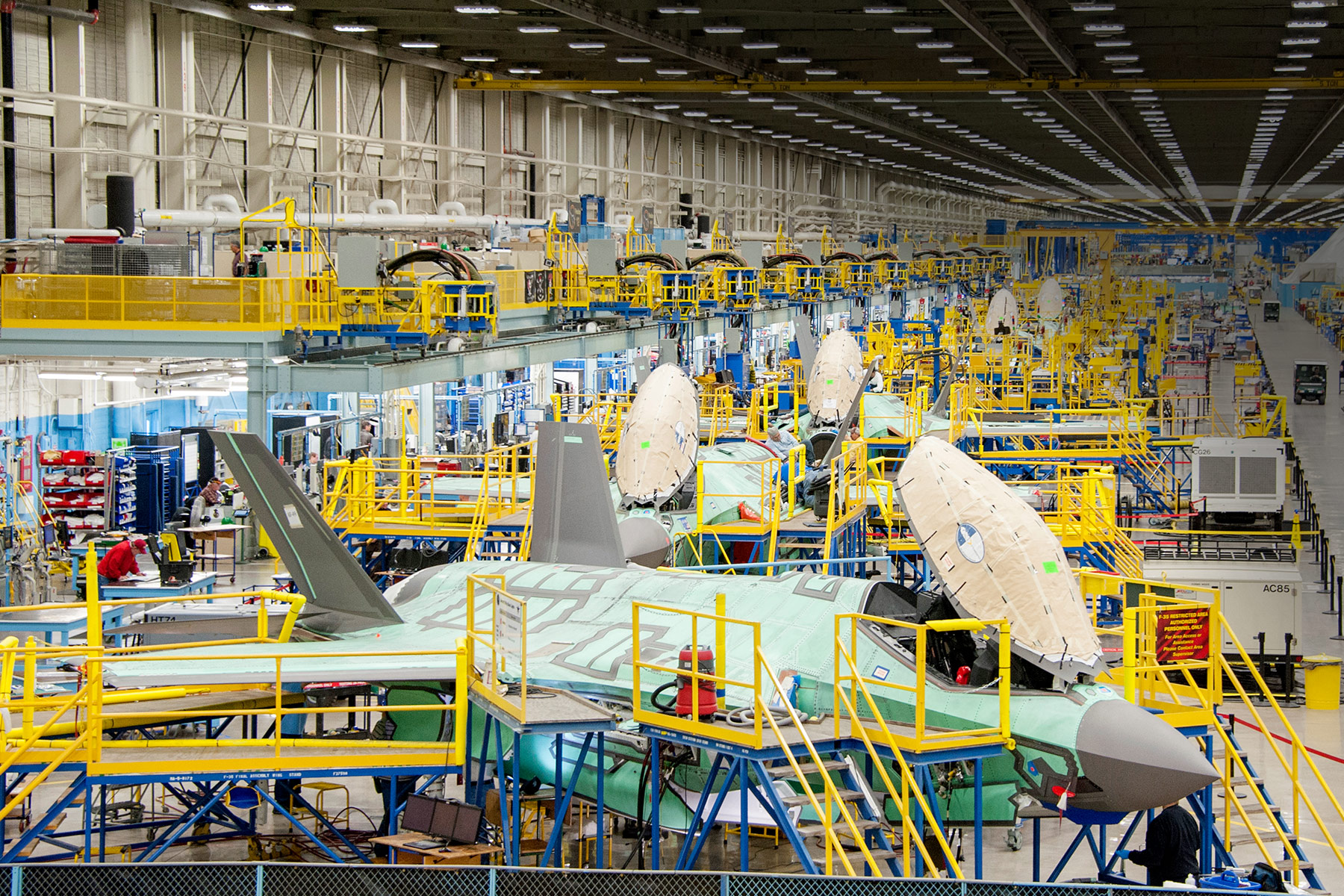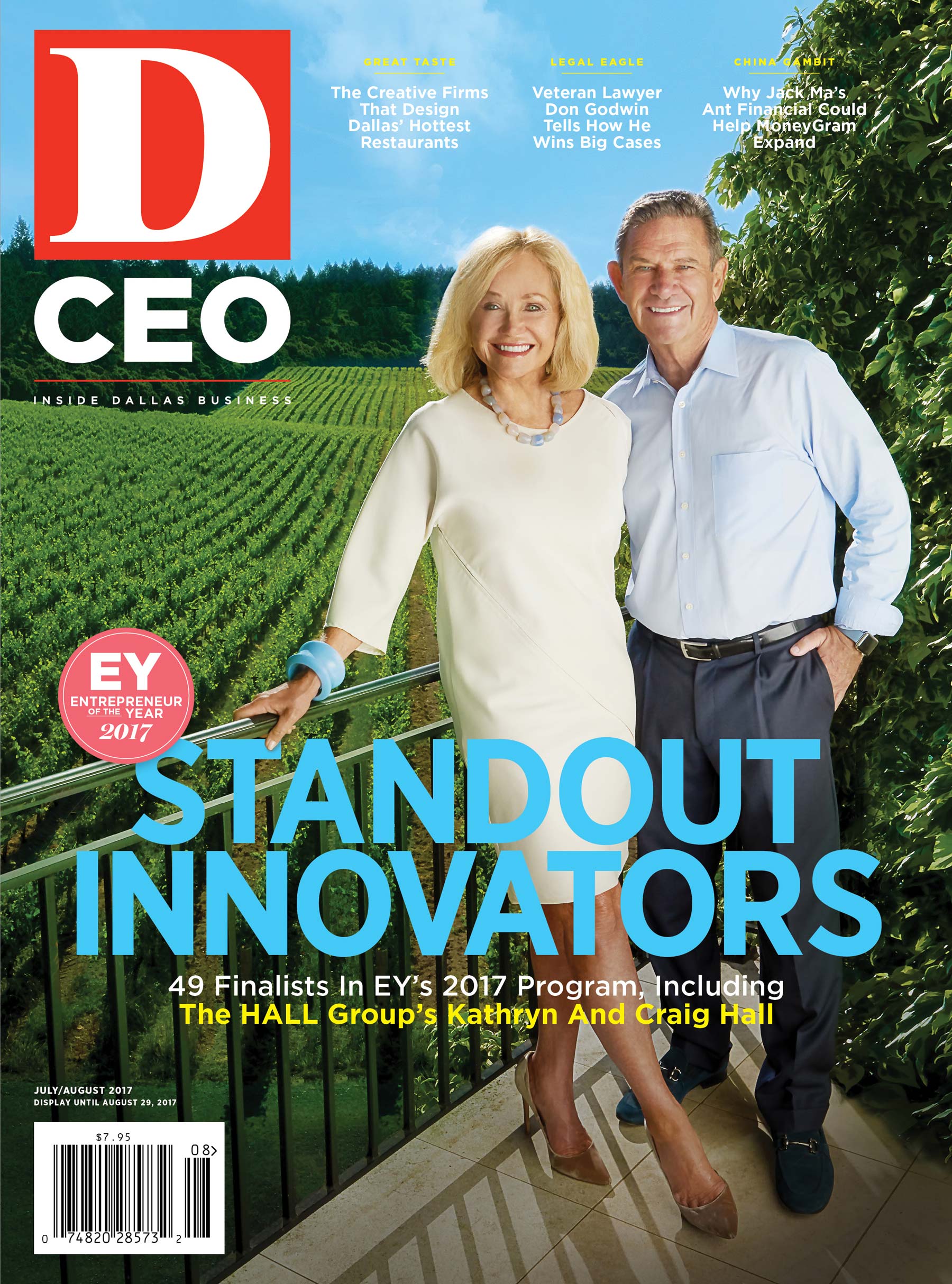Contrary to popular belief, manufacturing isn’t really shrinking, it’s just moved—in many cases, to North Texas. Among Dallas-Fort Worth’s largest industry sectors, manufacturing ranks second, comprising 16.1 percent of economic activity, behind only the finance/insurance/real estate sector, at 18.6 percent, recent statistics show.
“Dallas’ booming economy has propelled job growth in its manufacturing sector,” says Dallas Federal Reserve economist Laila Assanie. While Texas’ manufacturing employment contracted as a whole in 2016, Dallas’s enjoyed a 1.8 percent increase. (Fort Worth was flat last year, Assanie adds, owing to energy-related woes.)
According to the Dallas Regional Chamber, DFW has more manufacturing activity than any other Texas metropolitan area, cornering nearly 30 percent of the state’s employment in the sector. Leading North Texas manufacturers include the giant General Motors assembly plant, Texas Instruments, and Lockheed Martin.
In Fort Worth, Lockheed Martin Aerospace employs 13,500. The company’s Janet Nash, vice president of F-35 production, says that “aviation technology has witnessed a dramatic change in manufacturing processes and new materials.” That’s proven with the sometimes-controversial F-35 Lightning II, the latest iteration of fighters from Lockheed, which has its origins in building B-52 bombers in the 1940s and ’50s.

The requirements of the fifth-generation stealth aircraft, the world’s most advanced jet fighter, require much “greater precision in the parts and assembly, and a more highly trained work force,” Nash says. Lockheed business growth, she adds, is being driven by customers’ needs for higher-end aircraft with more capabilities, and the replacement of aging fleets from the U.S. Air Force, Navy, Marine Corps, and American allies.
At the company’s mile-long manufacturing facility in Cowtown, Nash says her outlook for Lockheed includes significant growth. “We are ramping up full production for our F-35s,” she says. “We have 144 jets in process from beginning assembly to test flights. Next year, 171 will be in process and, the following year, 230 jets. As we grow, we’ll need more people to process those jets.” The company expects to add 1,800 new jobs, and to help fill them recently inaugurated a career development center at The University of Texas at Arlington.
In addition to making aerospace components, consumer goods, food products, computer bits, and ceramics, DFW’s manufacturing scene includes robust activity in chemical, pharmaceutical, and medicine production, as well as medical equipment and supplies. Firms like Fort Worth-based Alcon Laboratories and Abbott Laboratories and Essilor of America, both with major operations in Dallas, are the region’s life sciences stars.
As a major high-tech center, Dallas boasts twice the share of computer-manufacturing employment compared to the rest of the nation, says Assanie of the Dallas Fed. Jobs in computer manufacturing expanded in Dallas both last year and in 2015, according to Fed data as of mid-March. “We saw a pickup in Dallas’ computer and electronic product manufacturing employment in mid-2014, and payrolls grew 4.5 percent in 2015 and 2.2 percent in 2016, versus declines in” the state as a whole, Assanie says.
DFW’s defense and security cluster is a growth area and is classified as a “star performer” by the Dallas Fed. Also in the star and “emerging” category is information technology and telecommunications. North Texas manufacturers, of course, are integral parts of these clusters. Workers employed in computer manufacturing saw their average annual earnings increase to $125,000 in 2014, up from $103,000 in 2006. In comparison, overall Dallas earnings average $59,013 annually.
At Lockheed Martin’s Missile and Fire Control business unit in Grand Prairie, which employs 2,700 people, the firm designs, develops, and manufactures “precision engagement” aerospace and defense systems for the U.S. military and American allies. According to manufacturing Vice President Dr. Randy O’Neal, the design and development side of the business is growing and evolving because of the constant march of technological progress.
“Production programs such as air defense and the Patriot Advanced Capability air defense missiles had been steadily increasing in the last 10 years, and will level off but continue to rise,” O’Neal notes. The development side is constantly changing, he says, because of emerging capabilities such as 3-D printing.
In preparing the current and future workforce, O’Neal says, “we have been able to augment, or up-skill, people.” Looking ahead to 2030, he sees the skill mix shifting, given technological advances including robotics, machine learning, and artificial intelligence. However, O’Neal foresees “a strong, steady employment growth plan, in parallel with the use of automation.” But leaders at the business unit don’t push automation for automation’s sake, he stresses; rather, they “augment.” After all, someone still has to manage the machines.
To stay ahead of rapidly emerging technologies, O’Neal adds, the company has to constantly “adopt and adapt.” With advances in machine intelligence and cognitive intelligent interfaces, for example, the business unit now can use virtual reality functions to design new factories. “Our challenge is to be flexible and to continue to innovate alongside new capabilities in the commercial world,” O’Neal says. “We have to be more affordable, leaner, and an agile business that can respond to customer needs much quicker.”







